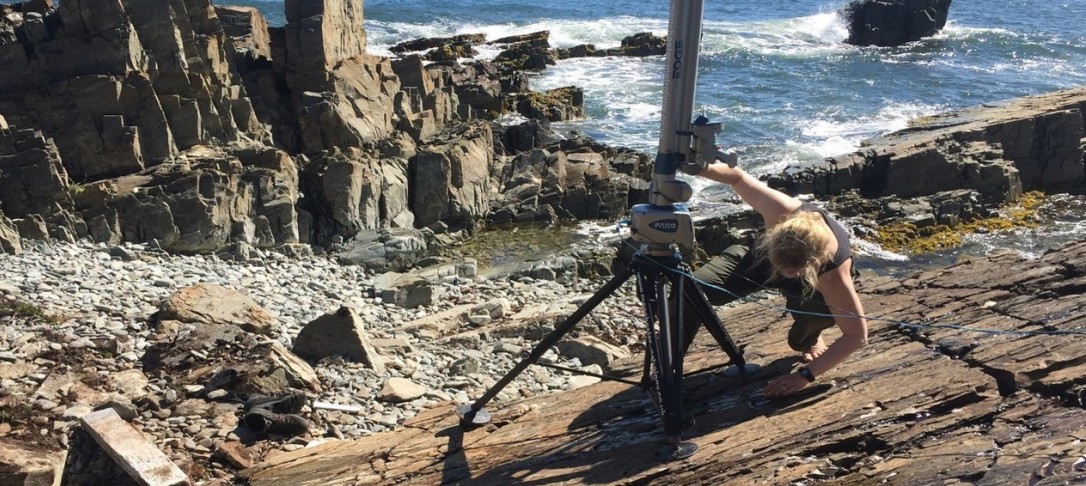
Dr Emily Mitchell will give the ESE Departmental Seminar on 4 November, “Using ecology to unlock the secrets of early animal evolution“
Join us online on Thursday 4 November by clicking “Livestream” on the seminar page at 12pm.
Using ecology to unlock the secrets of early animal evolution
The sudden appearance of animals in the fossil record, after billions of years of microbial life, is one of the most dramatic events in the history of life on Earth. These oldest known animals are found in the Ediacaran time period (630–541 Ma), just before the Cambrian radiation. Studying Ediacaran evolution is fraught with difficulties due to the unique anatomies of Ediacaran organisms, but we have one potential avenue of attack: the preservation of Ediacaran fossils is exceptional, with thousands of organisms preserved where they lived. To exploit this information, a suite of ecological methodologies can be used – methodologies that are normally only used on extant communities.
During her talk, Emily will highlight how this rich data source, combined with cutting-edge technological and ecological advances, has transformed our understanding of Ediacaran life. She will explain how laser scanning has transformed our ability to digitally capture hundreds of square metres of Ediacaran bedding planes across the wind-swept coasts of Newfoundland, Canada. Over the last four years, Emily and her team have used a micron-resolution laser scanner to capture almost 20,000 fossils in-situ from both Newfoundland and Charnwood Forest, UK. She will explain how this unprecedented dataset has been used with spatial and Bayesian approaches to enable researchers to tease apart Ediacaran eco-evolutionary dynamics and explore how these organisms paved the way for the rapid Cambrian radiation of animals. This seminar will discuss discoveries such as how some Ediacaran species were dominantly clonal; how Ediacaran communities are highly unusual, rarely competing with each other for food; and how variations in local habitat may have driven Ediacaran diversification and paved the way for the Cambrian radiation.
Biography
 Dr Emily Mitchell’s research investigates the role of ecological processes on evolution through deep-time, from the first animal communities of the Ediacaran to the present day.
Dr Emily Mitchell’s research investigates the role of ecological processes on evolution through deep-time, from the first animal communities of the Ediacaran to the present day.
Her interdisciplinary approach is shaped by her PhD in Palaeobiology, coupled with Master’s Degrees in ecology, physics and mathematics. During her Henslow Research Post Doctoral Fellowship, Emily developed an innovative research program to address previously intractable questions about early animal life; this program imported novel field-based laser-scanning techniques from aerospace and combined approaches from disciplines such as forest ecology and neural networks. More recently, Emily has expanded her research to investigate the ecology of Phanerozoic benthos, as well as living deep-sea and Antarctic communities.